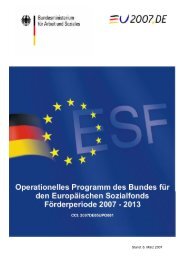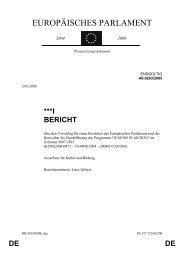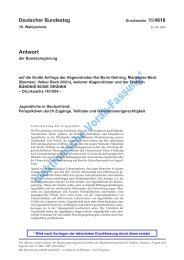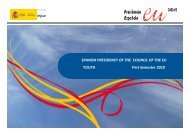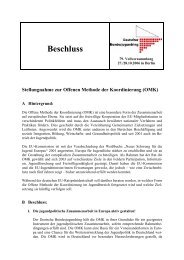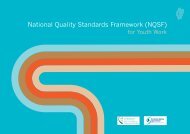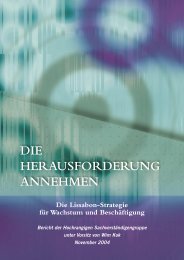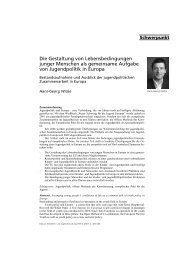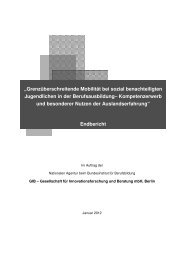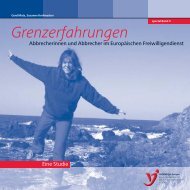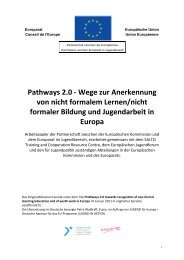Report - Salto
Report - Salto
Report - Salto
You also want an ePaper? Increase the reach of your titles
YUMPU automatically turns print PDFs into web optimized ePapers that Google loves.
Bridges for Recognition | Conclusions and closing remarks<br />
79<br />
We have discussed the issue of credibility and accountability with the field of recognition: In<br />
particular to young people as the end users of whatever schemes, awards or processes we devise<br />
and we have been challenged – in light of current policy – to consult with and involve them more.<br />
We have also been challenged to engage more with politicians – to promote, provide evidence<br />
and demonstrate the effectiveness of non-formal education with young people and its benefits<br />
to society, the economy and the citizenship agenda. And we have been encouraged to ensure<br />
that recognition is credible on a personal level; that those being recognised (be they young<br />
people, youth workers or youth trainers) will be confident in the process and the relevance of<br />
the outcome.<br />
On a more practical level, we have studied the different things that might be recognised:<br />
Standards achieved, competencies demonstrated, distance travelled in personal growth,<br />
contributions made to society, communities, organisations, families and individuals. We have<br />
seen some innovative thinking about what can be recorded and how it can be recorded. These<br />
include skills, knowledge, experience, achievements, values and attitudes; and they can be<br />
recorded in portfolios (electronic and paper based), in pictures and videos, through discussion<br />
and writing and even singing!<br />
We have thought a little about how we know what to record and how to organise the information<br />
available. We have seen processes which rely on comparison with agreed standards and we<br />
have seen processes which focus on clearly setting out evidence so that it enables the reader<br />
to interpret for themselves. For trainers and youth workers we have heard about occupational<br />
profiling and functional analysis (involving 360 degree consultation with stakeholders)<br />
leading to a set of standards.<br />
Crucially in all of this we have learned that recognition in the non formal sector is relational – it’s<br />
a two way processes between the person wanting recognition and the educator or assessor. For<br />
many it is an evolutionary, developmental process rather than a pass or fail situation. We have<br />
also heard that recognition should be a lifelong and a life wide learning process: To separate the<br />
learning and the recognition is to devalue the whole.



